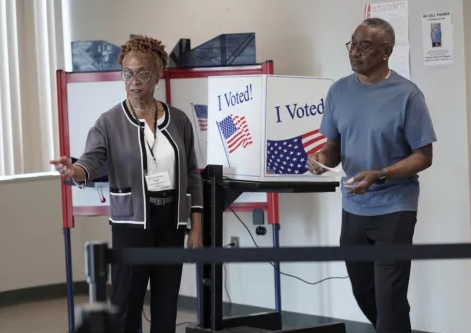Fake news, social media, and 'The Death of Truth'
CBS’ Ted Koppel (right) watches a video with author and journalist Steven Brill related to his new book, “The Death of Truth.” "There are facts," Brill says, "and it used to be in this world that people could at least agree on the same set of facts and then they could debate what to do about those facts."
CBS News
We live in an age of alternate facts. More and more Americans are getting their information almost entirely from outlets that echo their own political point of view. And then, of course, there's social media, where there are few (if any) filters between users and a wide world of misinformation.
For example: On July 13 a sniper came within inches of assassinating Donald Trump as he addressed an outdoor rally in Pennsylvania. Within minutes, social media was alive with uninformed speculation. One woman posted, "Who did it? I bet you it was the government themselves. They're all on the same side."
Koppel said, "We have no idea who she is, she has no particular credibility. Why should I even care that she is out there?"
"Because she could potentially have an audience," said journalist and author Steven Brill. "If the algorithm gives it steam, that could be seen by millions of people."
And then on X (formerly Twitter), this message: "You're telling me the Secret Service let a guy climb up on a roof with a rifle only 150 yards from Trump? Inside job." That message has seven million views and counting.
LEARN MORE ABOUT THE DEATH OF TRUTH IN OUR BOOKS SECTION
ADDITIONAL NEWS FROM THE INTEGRITY PROJECT




